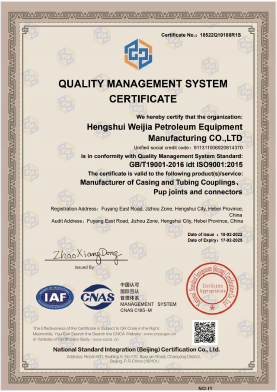- Afrikaans
- Albanian
- Amharic
- Arabic
- Armenian
- Azerbaijani
- Basque
- Belarusian
- Bengali
- Bosnian
- Bulgarian
- Catalan
- Cebuano
- Corsican
- Croatian
- Czech
- Danish
- Dutch
- English
- Esperanto
- Estonian
- Finnish
- French
- Frisian
- Galician
- Georgian
- German
- Greek
- Gujarati
- Haitian Creole
- hausa
- hawaiian
- Hebrew
- Hindi
- Miao
- Hungarian
- Icelandic
- igbo
- Indonesian
- irish
- Italian
- Japanese
- Javanese
- Kannada
- kazakh
- Khmer
- Rwandese
- Korean
- Kurdish
- Kyrgyz
- Lao
- Latin
- Latvian
- Lithuanian
- Luxembourgish
- Macedonian
- Malgashi
- Malay
- Malayalam
- Maltese
- Maori
- Marathi
- Mongolian
- Myanmar
- Nepali
- Norwegian
- Norwegian
- Occitan
- Pashto
- Persian
- Polish
- Portuguese
- Punjabi
- Romanian
- Russian
- Samoan
- Scottish Gaelic
- Serbian
- Sesotho
- Shona
- Sindhi
- Sinhala
- Slovak
- Slovenian
- Somali
- Spanish
- Sundanese
- Swahili
- Swedish
- Tagalog
- Tajik
- Tamil
- Tatar
- Telugu
- Thai
- Turkish
- Turkmen
- Ukrainian
- Urdu
- Uighur
- Uzbek
- Vietnamese
- Welsh
- Bantu
- Yiddish
- Yoruba
- Zulu
bull plug oil and gas
The Role of Bull Plug in Oil and Gas Operations
In the oil and gas industry, efficiency and safety are paramount. Among the myriad of components that facilitate the seamless operation of drilling and extraction processes, bull plugs play a crucial yet often underappreciated role. These simple devices, integral to various systems, are essential for preventing leaks and ensuring the integrity of equipment in demanding environments.
Understanding Bull Plugs
Bull plugs, typically made from durable materials such as steel or high-grade polymer, are designed to seal off openings in pipelines and equipment. Their primary function is to block off the end of a pipeline or vessel temporarily or permanently, thus preventing the escape of fluids, gases, or vapors. This is especially critical in the oil and gas sector, where high-pressure environments and hazardous materials are commonplace.
Applications in Oil and Gas
The applications of bull plugs within the oil and gas industry are diverse. They are commonly used to seal the ends of pipes during construction, maintenance, or repair activities. For instance, when a pipeline is being installed or repaired, bull plugs can prevent contamination or spillage of oil or gas, thereby protecting both the environment and the safety of workers.
Moreover, bull plugs play a vital role in pressure testing applications. During pressure testing, which ensures that pipelines and equipment can withstand operational pressures without failure, bull plugs are used to seal openings securely. This helps in accurately gauging the pressure levels and identifying any leaks that may indicate a problem within the system.
bull plug oil and gas

Safety Concerns and Regulations
Given the potential hazards associated with oil and gas operations, safety regulations govern the use of such components. Bull plugs must meet rigorous industry standards to ensure they can withstand the extreme conditions of oil and gas environments. Regular inspections and maintenance of these devices are crucial to ensure their reliability. A malfunctioning bull plug can lead to catastrophic spills or leaks, resulting in financial loss and environmental damage, as well as posing serious risks to worker safety.
Technological Advancements
Recent advancements in technology have also influenced the design and use of bull plugs. Innovative materials and manufacturing techniques have led to stronger, more reliable plugs that can withstand higher pressures and temperatures. Additionally, smart technology integration, such as sensors that can monitor the integrity of the seals, has opened new avenues for enhanced safety and efficiency. These advancements not only improve performance but also help in proactive identification of potential issues before they escalate.
Conclusion
In summary, while often overlooked, bull plugs are an essential element of oil and gas operations. Their ability to prevent leaks, facilitate pressure testing, and adhere to safety regulations underscores their importance in maintaining the integrity of critical systems. As the industry continues to evolve, the role of bull plugs will likely expand, driven by technological advancements and a growing emphasis on environmental stewardship. Ensuring the proper use and maintenance of bull plugs can lead to safer and more efficient oil and gas operations, ultimately benefiting not just the industry but society as a whole. Through continuous innovation and adherence to safety standards, bull plugs will remain a vital component in the quest for safer energy production.
-
Tubing Pup Joints: Essential Components for Oil and Gas OperationsNewsJul.10,2025
-
Pup Joints: Essential Components for Reliable Drilling OperationsNewsJul.10,2025
-
Pipe Couplings: Connecting Your World EfficientlyNewsJul.10,2025
-
Mastering Oilfield Operations with Quality Tubing and CasingNewsJul.10,2025
-
High-Quality Casing Couplings for Every NeedNewsJul.10,2025
-
Boost Your Drilling Efficiency with Premium Crossover Tools & Seating NipplesNewsJul.10,2025







